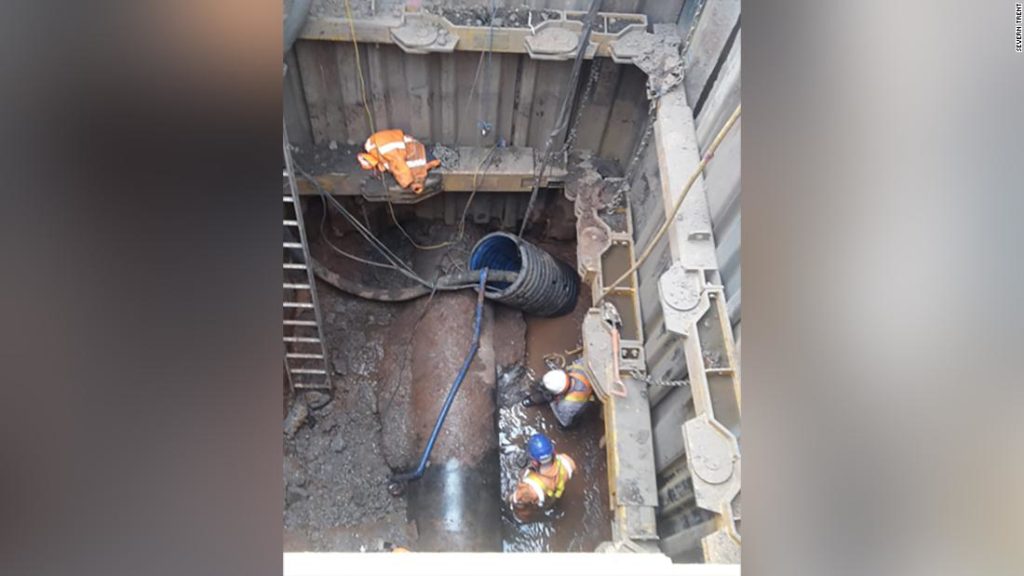The mammoth mass of waste stretches to more than half a mile in length and weighs 330 tons, Seven Trent Water said in a statement.
They estimated that the fatberg may not be cleared until June.
“While the true extent of the blockage won’t be known until it is removed, it is likely to be one of the biggest blockages Severn Trent has ever dealt with,” the company said.
“It’s a massive project and it’s not resolved yet,” added Scott Burgin, operations manager at Severn Trent. “This giant mass is the result of everyone occasionally washing and flushing the wrong things down the drains, and not realising the impact that it’s having.”
Burgin blamed unflushable products like wipes, diapers and sanitary products being flushed in England’s second most-populous city.
And he issued some alliterative advice to residents of Birmingham: “Our advice is to always leave leftover cooking fat to cool, before disposing of it in the bin and to stick to only flushing the three P’s (pee, poo and toilet paper) and bin anything else.”
Fatbergs (the word is a portmanteau of fat and iceberg) form over time as items that can’t be broken down are flushed or washed down drains instead of disposed correctly.
A sewage sensor, which monitors for rising water levels, alerted the company to the Birmingham berg.
Thames Water, which operates the water system in London, says it spends £1 million a month, ($1.4 million), to clear blockages of this kind.
You may also like
-
Afghanistan: Civilian casualties hit record high amid US withdrawal, UN says
-
How Taiwan is trying to defend against a cyber ‘World War III’
-
Pandemic travel news this week: Quarantine escapes and airplane disguises
-
Why would anyone trust Brexit Britain again?
-
Black fungus: A second crisis is killing survivors of India’s worst Covid wave

